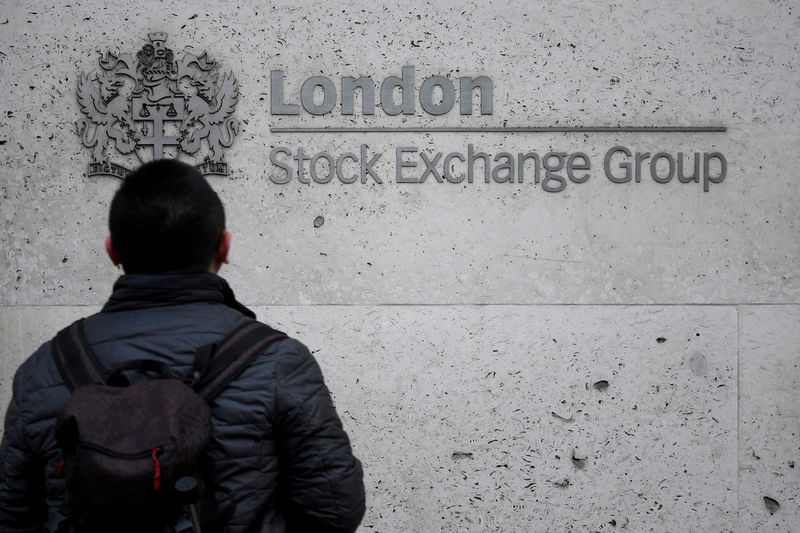By Sujata Rao
LONDON (Reuters) - World shares held near one-week highs on Wednesday, supported by robust U.S. earnings and expectations of additional stimulus from Beijing that could temper the impact of China's simmering trade dispute with the United States.
U.S. equities now stand less than half a percent off record highs hit in January, testifying to the strength of the world's biggest economy and corporate sector, which has seen average earnings grow 23 percent in the second quarter.
The picture in the rest of the world is less rosy, given slower economic momentum and the greater vulnerability of other big economies - from China to Germany - to U.S. trade levies. Washington is preparing to start collecting tariffs on an additional $16 billion in Chinese goods.
But for now many markets, especially in Asia, are supported by the U.S. tech rally that recently saw iPhone maker Apple (NASDAQ:AAPL) become the world's first $1 trillion company.
MSCI's index of stocks from 47 countries was marginally higher while Asian equities (MIAPJ0000PUS) rose 0.3 percent, led by tech-heavy Taiwan <.MITW00000PUS>. Japan's Nikkei ticked up 0.4 percent.
"Everyone is just focusing on U.S. earnings... and feeling the U.S. market will remain robust despite trade uncertainties, and that's the main driver right now," said Christophe Barraud, a strategist at Paris-based brokerage Market Securities.
Barraud said autumn could bring a reality check in the form of slower U.S. growth indicators, Italian politics, Britain's Brexit negotiations with the European Union, U.S. mid-term elections and - above all - the risk of trade war escalation.
"Support from U.S. earnings could last until the end of August and when people are back in September they will focus more on other events....(The trade war) is not a short-term conflict about a trade deficit but a longer-term story."
Indeed, support from company earnings is less evident elsewhere -- a raft of weak results pushed European shares to trade just below flat.
Average European second quarter earnings growth is running at 9.9 percent, according to Thomson Reuters I/B/E/S, healthy but significantly lagging Wall Street.
Chinese equities meanwhile fell 0.4 percent as news of the additional U.S. tariffs overshadowed strong trade data that showed exports rose more than expected in July. A rise in imports also suggested Chinese domestic demand remains resilient.
Trade fears were tempered somewhat by signs Beijing is unveiling further measures to support growth, such as increasing infrastructure spending and tweaking its monetary policy stance.. That lifted the yuan further off recent 15-month lows to the dollar.
Chotaro Morita, a strategist at SMBC Nikko Securities, said Beijing's policy support was "starting to give some support to other major markets".
But he predicted the impact would be limited. "The reason they have to do so is escalating trade tensions so you can't expect much upside."
S&P500 equity futures indicated a flat Wall Street opening.
BREXIT AND STERLING
While most currency markets were relatively calm, sterling came under renewed pressure, falling to 11-month lows against the euro, dollar and yen.
Its woes stem from mounting concerns that Britain could crash out of the European Union without a trade deal in place, raising fears of a serious hit to the economy. With the government still far off agreeing an exit deal with Brussels, currency traders are increasingly edgy.
Market players said they were seeing increasing moves by investors to hedge sterling risks.
"A lot of companies can't wait until the (Brexit) outcome is clear... Many of them are trying to hedge against a drop in sterling," Barraud of Market Securities said.
Elsewhere the dollar's recent mini-rally appeared to have run out of steam, offering some respite to most emerging currencies including the yuan. The Turkish lira, the biggest mover in recent days, fell another 0.7 percent, though it stayed well off recent record lows
On oil markets, Brent futures held firm around $75 a barrel as U.S. sanctions on Iranian goods went into effect, intensifying concerns of looming crude supply shortages.

Brent is up 2 percent this week.